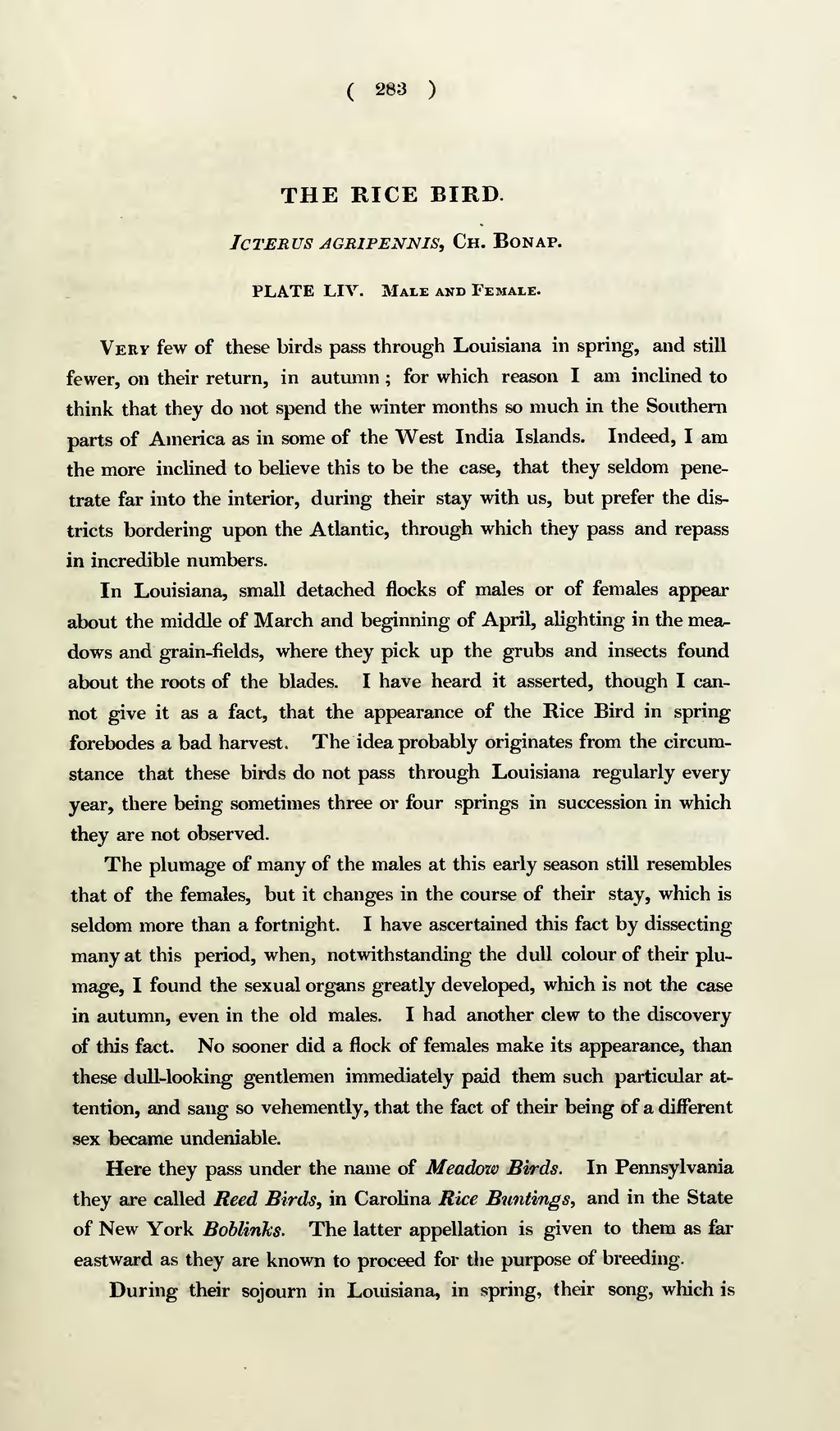( 283 )
Very few of these birds pass through Louisiana in spring, and still fewer, on their return, in autumn; for which reason I am inclined to think that they do not spend the winter months so much in the Southern parts of America as in some of the West India Islands. Indeed, I am the more inclined to believe this to be the case, that they seldom penetrate far into the interior, during their stay with us, but prefer the districts bordering upon the Atlantic, through which they pass and repass in incredible numbers.
In Louisiana, small detached flocks of males or of females appear about the middle of March and beginning of April, alighting in the meadows and grain-fields, where they pick up the grubs and insects found about the roots of the blades. I have heard it asserted, though I cannot give it as a fact, that the appearance of the Rice Bird in spring forebodes a bad harvest. The idea probably originates from the circumstance that these birds do not pass through Louisiana regularly every year, there being sometimes three or four springs in succession in which they are not observed.
The plumage of many of the males at this early season still resembles that of the females, but it changes in the course of their stay, which is seldom more than a fortnight. I have ascertained this fact by dissecting many at this period, when, notwithstanding the dull colour of their plumage, I found the sexual organs greatly developed, which is not the case in autumn, even in the old males. I had another clew to the discovery of this fact. No sooner did a flock of females make its appearance, than these dull-looking gentlemen immediately paid them such particular attention, and sang so vehemently, that the fact of their being of a different sex became undeniable.
Here they pass under the name of Meadow Birds. In Pennsylvania they are called Reed Birds, in Carolina Rice Buntings, and in the State of New York Boblinks. The latter appellation is given to them as far eastward as they are known to proceed for the purpose of breeding.
During their sojourn in Louisiana, in spring, their song, which is
